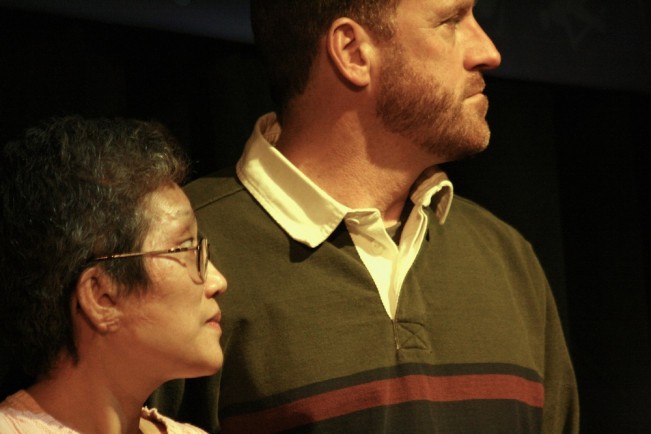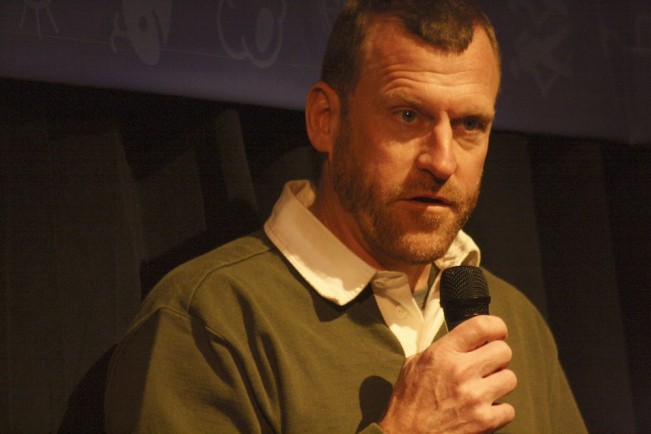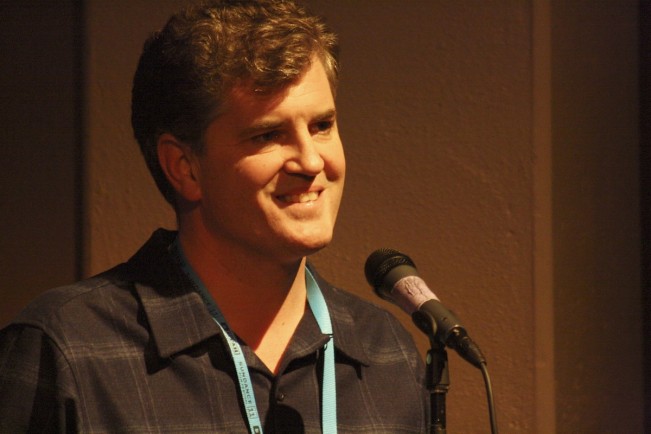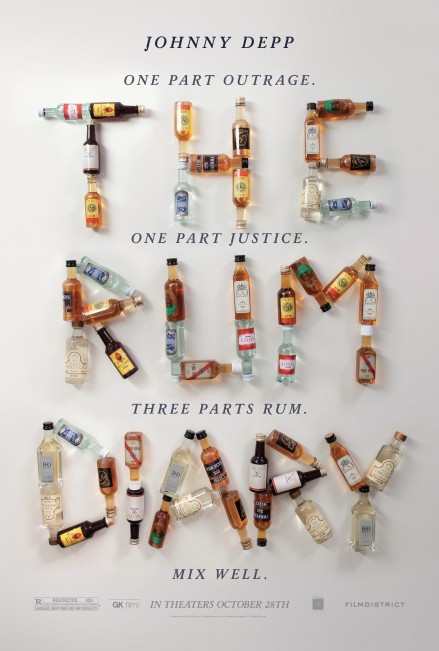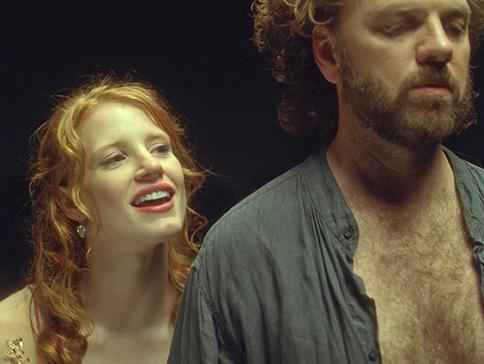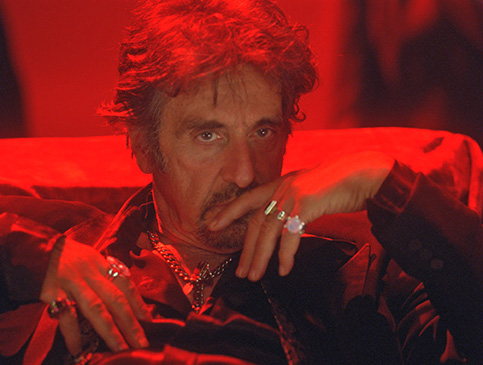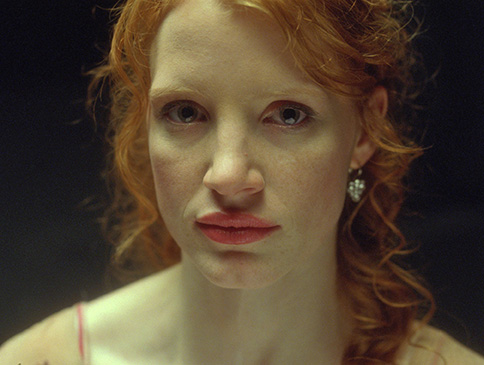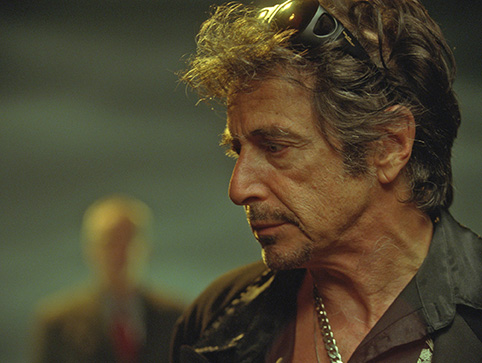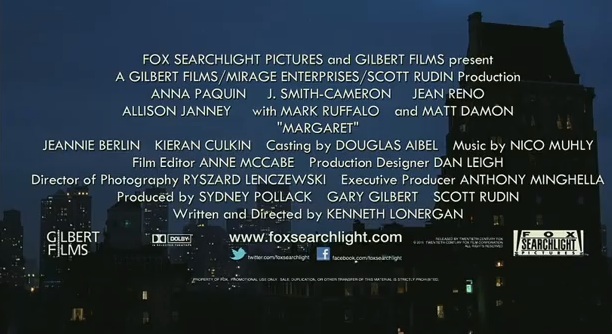Movie City Indie Archive for September, 2011
FILM: Rebirth
The simplest decision is the greatest strength of the documentary Rebirth: to select several survivors of 9/11 and meet up with them only once a year as a decade passes. Ups, downs, sorrows, passions: and directly, the creases of age, the changes of time, among those who live. Whitaker talks about the process here. Above, from the Sundance 2011 debut, Ling Young and firefighter Tim Brown, who lost his best friend. Below, Brown; and director Jim Whitaker. The ongoing project’s website is here, including “the most extensive use of time-lapse photography in history.” The video below the fold explains what’s required to keep those cameras running. Rebirth debuts on Showtime Sunday September 11 at 9pm. [Photos: Ray Pride.]
Trailering Sokurov’s Venice Winner FAUST
http://www.youtube.com/watch?v=iqkoLV81E3c?feature=player_embedded
A Lesson In Pandemic So You Don’t Wind Up Like Gwyneth Paltrow
FILM: Autobiography Of Nicolae Ceauşescu
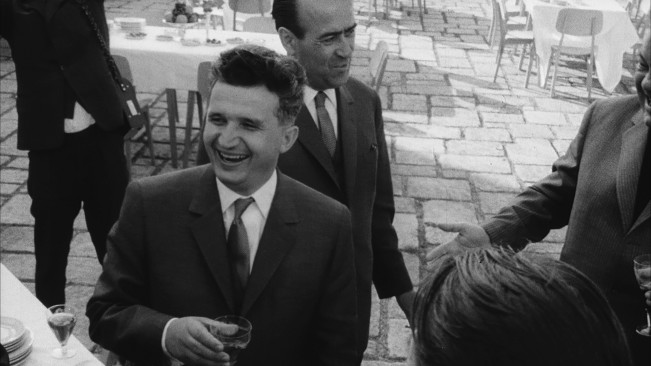 Andrei Ujica’s Autobiography Of Nicolae Ceauşescu (Autobiografia lui Nicolae Ceauşescu, ****) is a wry, comic, hallucinatory, slowly-disintegrating exercise in found footage, sound design and cultural criticism. Its three hours is comprised entirely of propaganda film shot to glorify dough-faced dictator Nicolae Ceauşescu across the decades of his cruel rule of the underprivileged country under Soviet rule. The only footage not under Ceauşescu’s hand is the rough VHS-grade bookends from 1989 of the provisional trial of he and his reputedly even crueler wife, Elena, stunned as they are told they will die for their crimes. What’s most mesmerizing is the rise and fall of production values and as years go by, the increasing unease and even disinterest of the other figures in the government who fill the frame. They smell the slow, encroaching stink of decrepitude, death. Autobiography Of Nicolae Ceauşescu is a far spacier ride than Trey Parker and Matt Stone’s musical rendition of Kim Jong-il in Team America: World Police, and almost sad beyond relief despite being an even more expansive burlesque. (How many millions of dollars did the thousands of hours of footage cost to produce across the dictator’s decades? Yikes.) Yet Ujica’s canny sound design is as critical as his studious montage: it is a critique of an epoch and its monster, but “autobiography” as the vain, vainglorious bastard never imagining he was confecting from his cloud cover of cut-rate hagiography. #
Andrei Ujica’s Autobiography Of Nicolae Ceauşescu (Autobiografia lui Nicolae Ceauşescu, ****) is a wry, comic, hallucinatory, slowly-disintegrating exercise in found footage, sound design and cultural criticism. Its three hours is comprised entirely of propaganda film shot to glorify dough-faced dictator Nicolae Ceauşescu across the decades of his cruel rule of the underprivileged country under Soviet rule. The only footage not under Ceauşescu’s hand is the rough VHS-grade bookends from 1989 of the provisional trial of he and his reputedly even crueler wife, Elena, stunned as they are told they will die for their crimes. What’s most mesmerizing is the rise and fall of production values and as years go by, the increasing unease and even disinterest of the other figures in the government who fill the frame. They smell the slow, encroaching stink of decrepitude, death. Autobiography Of Nicolae Ceauşescu is a far spacier ride than Trey Parker and Matt Stone’s musical rendition of Kim Jong-il in Team America: World Police, and almost sad beyond relief despite being an even more expansive burlesque. (How many millions of dollars did the thousands of hours of footage cost to produce across the dictator’s decades? Yikes.) Yet Ujica’s canny sound design is as critical as his studious montage: it is a critique of an epoch and its monster, but “autobiography” as the vain, vainglorious bastard never imagining he was confecting from his cloud cover of cut-rate hagiography. #
7 Minutes Of Sion Sono’s Venice Competition Tsunami Story, HIMIZU
http://www.youtube.com/watch?v=KhSoDJ-8aTU&feature=player_embedded
In competition at Venice. Writes THR’s Deborah Young: “Director Sono Sion had already written his adaptation of the 2001 manga… ‘Himizu,’ a shrill teenage wail of existential discomfort, when on March 11 an earthquake and tsunami devastated northern Japan. His intuition to rewrite it in light of those tragic events brings poignant meaning to a nearly unwatchable adaptation of a genre comic targeted at Japanese teens. This bizarre overlay of styles and moods is a daring gamble that somehow heightens understanding of Japan’s disaster, as though the only possible aesthetic approach was via cinema of the absurd.” Oliver Lyttelton‘s angry Royal notice at indieWIRE: “We’re not going to beat around the bush here. We hated the experience of watching the vast majority of Himizu. Hated it. If we weren’t reviewing it, we might have walked out (as plenty did). Much of the film is played at a ludicrously high pitch, with most of the dialogue shouted or screeched, the first half of the film consists principally of the… characters receiving… beatings (and never fighting back), set against near-unrelenting rain, the tone wavers in a second from grim desperation to slapstick comedy, and the music mostly consists of classical pieces of crashing obviousness—Barber‘s ;Adagio For Strings’ features prominently more than once (although, in fairness, it may have been a temp score, given Sono’s turnover on the project)…”
“Sparky” Schulz Shows You How To Draw Charlie Brown In Under A Minute
Trailering Kenneth Lonergan’s MARGARET
Nice skirt. Palpable grief, post-9/11. And:“Executive Producer Anthony Minghella.” “Produced by Sydney Pollack…” Here’s One of several contentious stories about the long road from the 2005 shoot to the September 30 release of Kenneth Lonergan’s long-awaited second film as director. While the trailer’s out, there’s no trace (yet) of the running time online. (A 2003 draft of the script that’s circulated for years ran 185 pages.)





